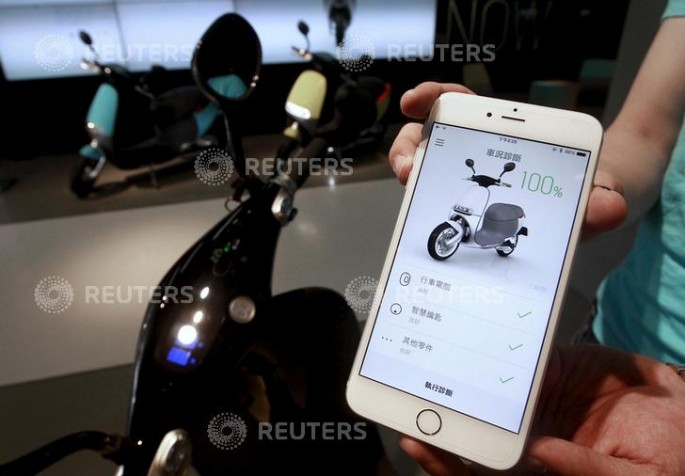As part of its efforts to boost economic growth, Taiwan has been luring and courting tech start-ups, such as the electric motor scooter company, Gogoro.
Gogoro's mere three-year presence in the business has already witnessed outstanding growth. It was able to raise $150 million to develop a smart bike and a charging network related to the bike's use.
Gogoro also lists Japan's Panasonic Corp. and HTC Corp.'s founder Cher Wang as a strategic partner and key investor, respectively.
The start-up's success in developing the said product--home-grown and innovative--is what Taiwan needs to drive economic growth.
Currently, Taiwan's government plans to reduce its export-driven economy's reliance on its world-class manufacturing sector.
"We hope our policies can help a start-up at its most difficult stage--the beginning--so it can go the way of Gogoro," Jan Fang-guan, an official at Taiwan's planning agency, the National Development Council (NDC), remarked.
Gogoro, along with other tech giants such as HTC, Hon Hai Precision Industry Co. Ltd., and Taiwan Semiconductor Manufacturing Co. Ltd., is seen as the island's main advantage over other countries who also seek to nurture tech start-ups.
In 2013, the NDC has observed the that growth in the tech manufacturing sector, which accounts for one-third of Taiwan's industrial output, was becoming stagnant.
In June, exports have decreased for the fifth consecutive month and have posted the biggest fall for the past two years.
To address this concern, the NDC launched HeadStart last year. The project is aimed at establishing a domestic version of Silicon Valley by relaxing regulations for start-ups, creating tech centers, and matching funds for tech ventures.
This year, the project has already attracted funds worth around $348 million, Jan stated.






















